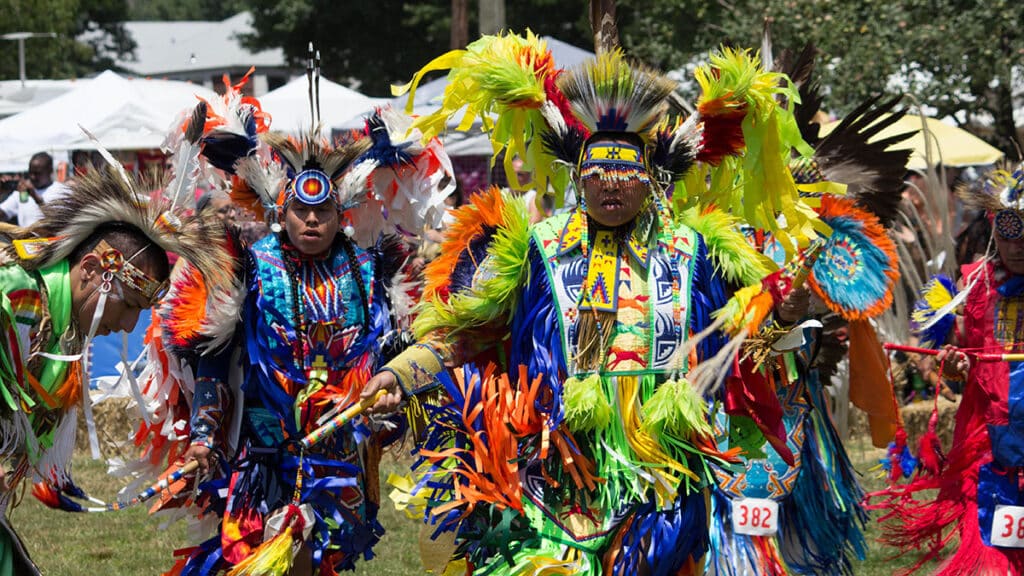
Indigenous Peoples Day NYC 2024 is an Native American Powwow with storytelling, singing, dancing, food, and artisanal crafts. The festival ends with a sunrise ceremony on Indigenous Peoples Day with beautiful views of the East River and Queens. Native Americans and Indigenous Peoples of the Americas join in the festival.
This drug and alcohol free event is free and open to the public. #IPDNYC
10th Indigenous Peoples Day NYC 2024
The 10th Indigenous Peoples Day NYC 2024 festival is on Randall’s Island, Manhattan; on Sunday-Monday, October 13-14, 2024. FREE. Overnight camping is available. 🇺🇸
The Festival opens on Sunday, October 13, 2024 at 10am. There is a Grand entry at 12noon. That is followed by tribal dancing, cultural performances, and talks.
Monday, Indigenous Peoples Day, starts with a sunrise tobacco and water ceremony followed by talks and cultural performances.
Indigenous Peoples Day NYC
The Powwow is a protest against Columbus Day because Columbus was an evil man who enslaved Indigenous peoples, brought a pandemic which killed 85-95% of America’s Indigenous population, unleashed a genocide against the remaining people, started the TransAtlantic trafficking of human beings, and brought an apocalypse of abuse, thievery, rape, enslavement, and murder to the Americas. There is nothing honorable about the man or the Colonial Era. A generation ago we believed the whitewashing of evil, but now you can’t say you didn’t know. Part of this is a movement to rename “Columbus Day” as “Indigenous Peoples Day.” It’s time to celebrate ourselves instead of the criminal colonizers.
The culture is mostly Native American, but all peoples are welcome. The organizers asked us to invite Caribbeans, Latin Americans, and Pacific Islanders because we are Indigenous too. In the beginning, we are all Indigenous somewhere.
A Taíno Areíto or a Yoruba Rumba are Latin PowWows
In Taíno Puerto Rico, a Powwow is called an “areíto.” It is a communal festival that lasts several days. The community gathers, tells epic stories of the ancestors, shares food and drink, drums, sings and dances together. It’s how the community organizes itself. We call the sacred circle a “batey.” Even though the Taíno tribe has been assimilated, our Indigenous roots live on in the Puerto Rican way of life. Now we call it weekends.
The Jatibonicu Taino Tribal Nation of Boriken is reclaiming Taíno traditions at taino-tribe.org
African Diaspora communal traditions are very similar. Cuban Yoruba, rumba, and changüi; Haitian yanvalou; Puerto Rican bomba; Colombian cumbia & Vallenato; Venezuelan tambor; Peruvian festejo; Argentine milonga, Brazilian samba and other traditions are Latin versions of a Native American Powwow. We are so alike.
Pacific Islander traditions are similar too. Humans do similar things around the world and across time.
We are still here. We have always been here. We will be here when the people are gone because the Great Spirit of our ancestors is universal and timeless.
This Powwow is produced by the Redhawk Native American Arts Council. redhawkcouncil.org
